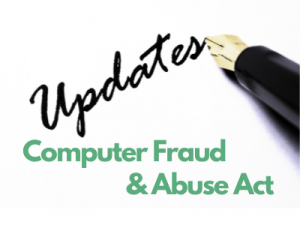The internet turns 50 today. At 10:30pm PT on October 29, 1969 in room 3420 at UCLA the first networked digital data transmission was sent to a computer, 350 miles away, at Stanford University. The computer operator at Stanford replied, and the computer operator in Room 3420 gained access to the computer at Stanford. Prior to this communication between computers running different protocols didn’t work. This was the birth of ARPANET, which turned into the internet as we know it. In the following decades ARPANET spread from universities into the private sector.
Mark Sullivan has a good article on the events of that day. What jumps out at me as I read it is how the current mythology of the birth of the internet – a mythology where it’s a creation of private enterprise, one that’s so fragile it needs legal immunity – is contrary to what actually happened. But so it goes with all religions, which are always more concerned with justifying actions than they are with truth. And the truth here is that the internet is a product of public funding channeled to a public state university. Yet the current mythology would have it that the public has no legal rights against Big Tech because, if the public were to exercise those rights, the internet would die.
Central to this mythology is the idea that the internet was truly born in 1996, like Athena fully formed springing from Zeus’s head, when Congress passed a law called the Communications Decency Act § 230 (CDA § 230). CDA § 230 effectively makes it impossible for anyone to sue an internet company even when that company knowingly profits from someone being stalked, harassed, defamed, or targeted by revenge porn. CDA § 230 is the reason Russian propaganda is rampant on social media, because unlike their brick and mortar media competitors, internet companies are immune from legal liability for publishing lies, or the use of their platforms to stalk, harass, or even rape and murder. Under CDA § 230, internet companies are free to, and do, profit from the harms their products inflict on our society. Essentially, they’ve expensed those harms to the public. Which is why it’s crucial to understand that the internet is not a creation of private enterprise, but rather is a publicly funded creation from a publicly funded school. Because it undercuts the primary narrative justification for the existence of CDA § 230 – that the internet wouldn’t exist without it because lawsuits would’ve stifled its growth.
Of course, anyone who was paying attention in the 1990’s knows the internet was well on its way before 1996. And it’s worth noting that the Republican Congress at the time, with Newt Gingrich as Speaker of the House, was busy passing all sorts of anti-consumer legislation like the Private Securities Litigation Reform Act, under the theory that deregulation was a public good. The financial collapse of 2008 proved this a delusion, as this deregulatory zeal dismantled crucial safeguards in our financial system leading to a global economic collapse. A collapse requiring massive government bailouts of the very businesses that so zealously preached the deregulation that brought them to their knees.
CDA § 230 is a product of the same Congress that laid the groundwork for the 2008 financial collapse. Likewise, CDA § 230 is inflicting damage on our society similar to what the 2008 financial collapse did. It allows companies to profit from harming society without any legal responsibility for those harms. In many ways its similar to the financial bailout the banking sector received after the 2008 collapse, in that CDA § 230 underwrites Big Tech by immunizing it from financial consequences of its business model. Viewed this way, CDA § 230 is a moral hazard that incentivizes behavior harmful to our society. Under a false narrative that what the public created private enterprise actually did.




